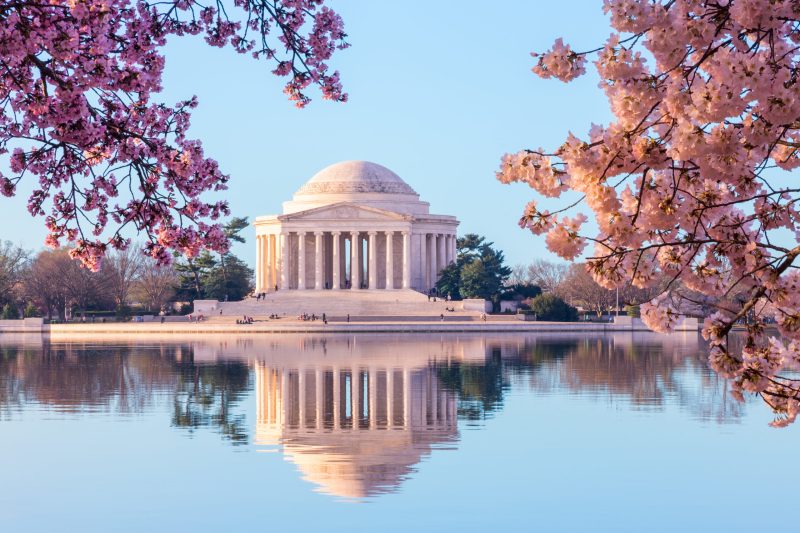GAP Report – April 2024

ABA’s Legislative and Policy Update
Legislative
Nutshell
After months of wrangling and several aborted attempts, Congress finally passed a supplemental foreign aid package; however, it has again put the House Speakership in peril. Due to early resignations and a death, Republicans hold the majority by a slim two votes, 217-212, which will likely be cut to 1 vote by the end of the week. Now the question is, what more can Congress get done this year, with a divided House, before the November elections?
Supplemental Funding
For months, the President and the Senate had pushed the House to vote on supplemental funding for Ukraine, Israel, and Indo-Pacific interests (i.e., Taiwan). The funding was opposed by Republican conservatives in both chambers (and candidate Donald Trump), and efforts were made to tie any additional funding with increased measures to secure the southern border of the US to appease these critics without success. However, after several attempts were made, including the Senate passage of a similar bill in February, Congress finally passed a package of bills (combined into HR. 815) to provide a $95.12 billion foreign aid package. The package did not include additional measures directed toward the US southern border; however, it did restrict some of the Ukraine funding in the form of a loan, a small victory for the conservatives.
FY 2025 Appropriations
The FY 2025 appropriations process is proceeding following the President’s budget proposal submission on March 11. Member offices in the House and Senate collected appropriations requests for consideration for inclusion in the final 12 appropriations bills. The House Appropriations Chair, Kay Granger (R-TX), stepped down just before the spring recess, and Republicans voted to replace her with Rep. Tom Cole (R-OK). Chairman Cole stepped in and has set tight deadlines for moving the bills forward in the House, along with restrictions on earmarks dictated by House Republican leadership, which are upsetting Democrats.
The House Appropriations Committee expects to hold hearings on a tight schedule through May, with the goal of (ambitiously) having all appropriations bills voted on by the House by July. The Senate schedule runs a bit later and does not include similar restrictions on earmarks, setting up a challenge in reconciling funding bills by the Sept. 30, the fiscal year deadline. However, a continuing resolution is likely, if not for all 12 bills, then for the more controversial bills, before the Nov. elections.
The ABA is again seeking an increase in funding for the Intercity Bus Security Grant program, submitting requests to various Congressional offices for a $10 million allocation for FY 2025.
Tax Issues
Although the House passed a bipartisan tax bill, H.R. 7024, that was crafted with the Senate Finance Chairman (the lead tax writer in the Senate), the bill appears to be languishing in the Senate. The bill does not include the fix to the CERTS tax liability ABA sought; however, it contains a Republican-supported extension of the bonus depreciation provision at 100%, the business interest deduction, and Democrat-supported restoration of the enhanced child tax credits. Several Republicans in the Senate have issues with the bill, including the enhanced child tax credit, and with the tax filing date now passed, the bill has lost momentum.
FAA Reauthorization
To expedite matters, the House and Senate passed separate bills, H.R. 3935 and S. 1939, to reauthorize Federal Aviation Administration programs through 2028. The two central committees quietly negotiated a reconciled bill, which is expected to be voted on in May before the extension deadline of May 10.
Regulatory/Administration
US DEPARTMENT OF TRANSPORTATION (USDOT)
Federal Motor Carrier Safety Administration (FMCSA)
New Motor Carrier Registration Process: On April 19, FMCSA published an information collection request as part of its process to develop a new online registration process aimed at reducing fraud and improving transparency and efficiency for the registration of motor carriers, transportation brokers, insurance companies and other users. The new process, if approved, would modernize the Unified Registration System, replacing it with a process that will be renamed the “Federal Motor Carrier Safety Administration Registration System.” Comments on the information collection request are due by June 18, 2024.
Federal Transit Administration (FTA)
Rural Area Circulars and Grant Guidance Update: On April 4, FTA published notice of a proposed new circular titled “Rural Areas Formula Grant Programs Guidance Proposed Circular.” This new circular combines existing program guidance on the Bus and Bus Facilities Formula Program (the rural component) and the Rural Area Formula Grants Program, including the 5311(f) grant program. Comments are due June 3, 2024, and can be filed here.
Federal Highway Administration (FHWA)
Toll Parity Information Collection Request Sought: On March 4, FHWA published notice of its intent to collect information from public authorities that operate toll facilities. This action results from the statutory language ABA successfully advocated for to ensure tolling equity. The information collected will allow FHWA to publish the toll rates at every toll facility for transit vehicles and over-the-road buses on an annual basis, as now required by law. Comments are due May 6, 2024, and can be filed here.
Unified Carrier Registration (UCR)
Requests Nominations to Board of Directors: On March 27, the UCR Plan requested nominations of qualified individuals for all five of the motor carrier industry positions for appointment by FMCSA to the UCR Plan Board of Directors. The vacancies will have terms which expire on May 31, 2027. Names and resumes can be sent to Matt Mantione, 529 14th Street NW, Suite 1280, Washington, DC 20045, or via email to [email protected]. Nominations are due by May 10, 2024.
US DEPARTMENT OF HOMELAND SECURITY (DHS)
Federal Emergency Management Agency (FEMA)
Applications for FY 2024 Intercity Bus Security Grants: On April 16, the DHS released the FY 2024 Notice of Funding Opportunity (NOFO) Announcement for the Intercity Bus Security Grant Program (IBSGP). The total funding amount available for FY 2024 is $1.8 million. ABA will host a webinar with FEMA on May 2 to review the application process. Completed applications are due by June 24, 2024.
Cybersecurity and Infrastructure Security Agency (CISA)
Cyber Incident Reporting Rules: On March 28, DHS published a notice to establish rules for reporting cybersecurity incidents and ransom payments to CISA, in compliance with the Cyber Incident Reporting for Critical Infrastructure Act or CIRCIA, passed in Dec. 2022. Comments are due by May 27, 2024.
This regulation will apply to Over-the-Road bus operators regulated by 49 CFR 1584, which includes fixed route operators who provide services to 10 high-threat urban areas: Anaheim/Los Angeles/Long Beach/Santa Ana Areas, San Diego, San Francisco, DC National Capital Region, Chicago, Boston, New York City/Jersey City/Newark Area, Philadelphia Area/Southern New Jersey Area, Dallas-Fort Worth/Arlington Area, and Houston.
US DEPARTMENT OF LABOR (DOL)
Wage & Hour Division (W&H)
Overtime Pay Thresholds: On April 26, the DOL’s WHD announced a final rule increasing the salary thresholds that trigger overtime pay or exemption for salaried executive, administrative or professional employees from federal overtime pay requirements. The annual salary threshold will increase to $43,888 on July 1, 2024, and automatically increase to $58,656 on Jan. 1, 2025. For highly compensated employees, the rule will adjust the threshold starting July 1, 2027, with salary thresholds updated every three years, using up-to-date wage data to determine new salary levels. View the summary of the changes.
US ENVIRONMENTAL PROTECTION AGENCY (EPA)
Greenhouse Gas Phase 3 Rules Finalized: On April 22, the EPA published a final rule, “Greenhouse Gas Emissions Standards for Heavy-Duty Vehicles – Phase 3,” that sets new standards to reduce greenhouse gas emissions from heavy-duty (HD) vehicles beginning in model year (MY) 2027. The new standards will apply to HD vocational vehicles (such as delivery trucks, refuse haulers, public utility trucks, transit, shuttle, school buses, etc.) and truck tractors (such as day and sleeper cabs on tractor-trailer trucks). It does not appear motorcoach engines will be heavily impacted by this rule. This final rule is effective on June 21, 2024.
$932 Million Grant Program to Fund Clean Heavy-Duty Vehicles, Available for Application: On April 24, EPA announced the availability of over $930 million in grants for the purchase of Class 6-7 clean heavy-duty vehicles. The program solicits nationwide applications for competitive grants to replace existing non-zero-emission Class 6 and 7 heavy-duty cars with zero-emission vehicles, including school buses. Eligible applicants for this funding opportunity include state and local governmental entities, public school districts, and nonprofit school transportation associations. Applications are due by July 25, 2024.
OTHER ISSUES
New York City
Congestion Pricing/Tolling: On March 7, the Metropolitan Transit Authority (MTA) approved a final tolling scheme. In sum, the toll rate schedule for buses is as follows: Intercity scheduled service buses and commuter buses under contract to a government or with schedules open to the public are exempted from tolls; Charter buses will be charged $24 for entry into the Central Business District, and Tour or Sightseeing buses will be charged $36. The MTA intends to begin the tolling scheme on June 30, 2024. Review an explanation of MTA’s Bus exemption plan.
Commercial Vehicle Safety Alliance (CVSA)
Updated OOS in Effect: The Commercial Vehicle Safety Alliance’s (CVSA) 2024 North American Standard Out-of-Service (OOS) Criteria is now available. The new criteria were enacted on April 1, 2024, superseding all previous versions. The OOS criteria are the pass-fail criteria for inspections.
NOTE: The annual CVSA inspection blitz, titled International Road Check, will take place May 14-16, 2024. This year, inspectors will pay special attention to tractor protection systems and alcohol and controlled substance possession.
